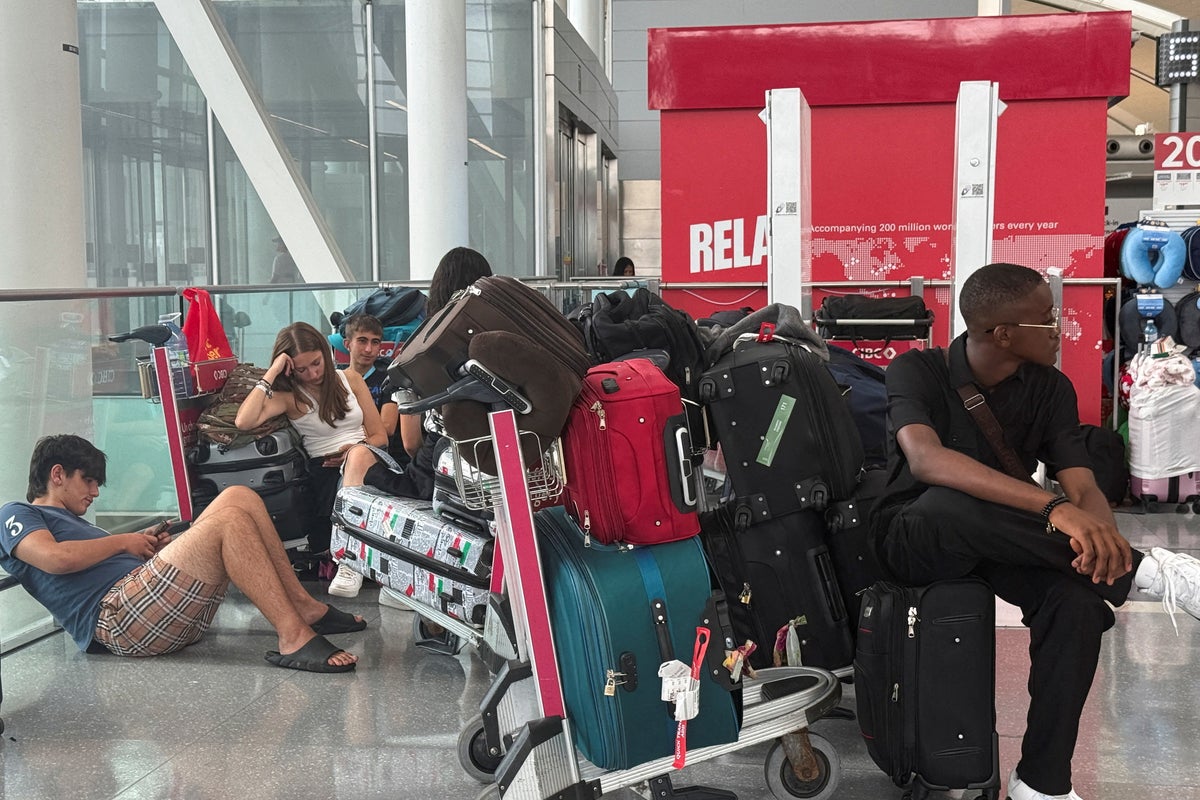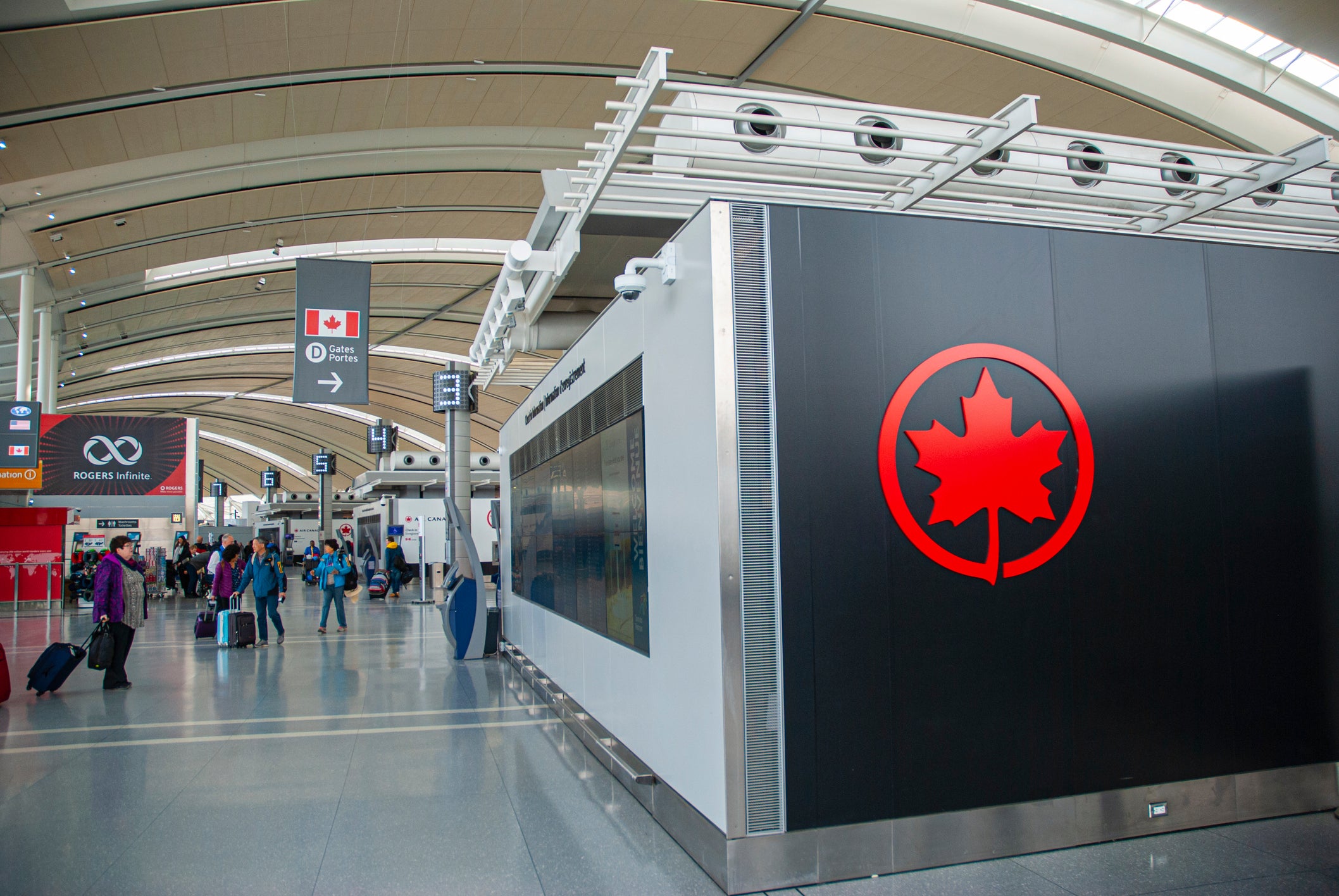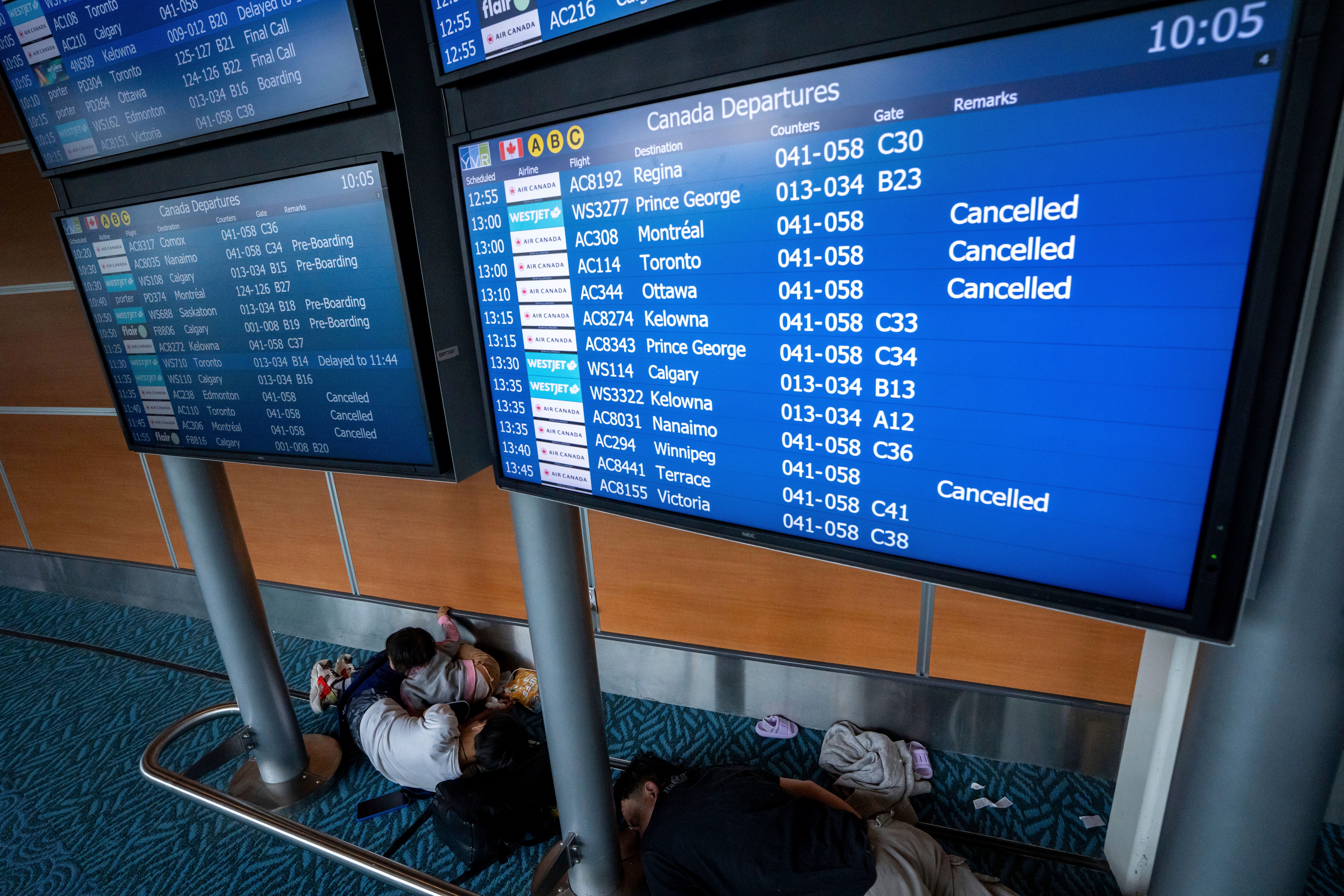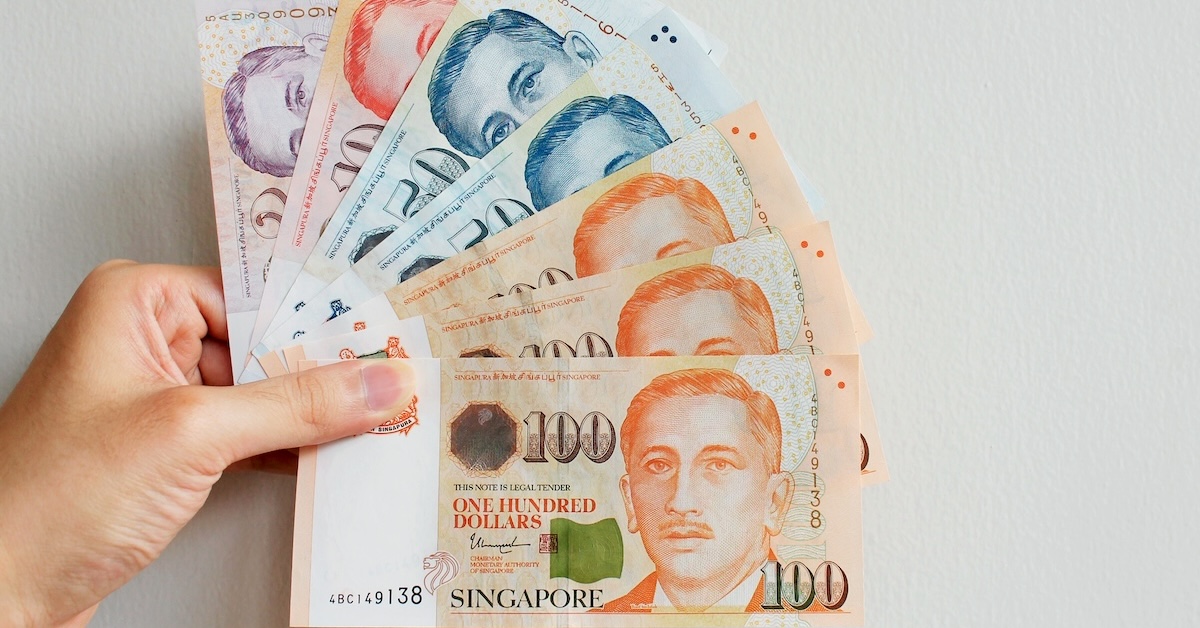Air Canada strikes: Passenger rights as the cancellations continue
Air Canada says it will ‘exceptionally’ pay for hotels, meals and replacement flights for passengers stranded abroad by the chaos

More than half-a-million passengers have been hit by Air Canada flight cancellations after a strike by cabin crew, a “lock-out by airline bosses and a refusals to return to work in line with a government order.
Even though a deal has been reached, four per cent of international flights are still expected to be cancelled on Friday 22 August.
Some British travellers have paid thousands of pounds extra to get home by alternative means.
Late on Thursday – a week after cancellations began – Air Canada said it would “exceptionally” pay for hotels, meals and replacement flights to passengers caught up in strike chaos.
These are the key questions and answers.
What is the dispute about?
Members of the Canadian Union of Public Employees working as cabin crew for the airline are embroiled in a long and bitter pay dispute. The union says it is fighting “the abuse of unpaid work and poverty wages for flight attendants”.
Cabin crew voted 99.7 per cent in favour of striking for better pay as well as an assurance of pay while on duty on the ground. In many North American airlines it is customary for crew to be paid only for the “block time” when the aircraft door is closed. Other activities, such as welcoming passengers on board and deplaning, are not paid.
CUPE says: “Unpaid work is an unfair practice that pervades nearly the entire airline sector.”
Air Canada says it has offered “a 38 per cent total compensation increase over four years” and insists arbitration is the fairest solution to the dispute.
But the union says: “With respect to Air Canada’s latest offer: it is below inflation, below market value, below minimum wage.”
CUPE’s national secretary and treasurer, Candace Rennick, said Air Canada is a “wildly profitable employer” and that the predominantly female workforce was having to fiight tooth and nail for a path out of poverty”.
What happened?
In response to a strike call by members of CUPE, the Canadian national airline started grounding flights on Thursday 14 August.
By Saturday 16 August Air Canada had imposed “a complete cessation of flying”.
The government then ordered cabin crew to return to work and accept binding arbitration. Initially Air Canada said flights would start to resume at 2pm on Sunday 17 August.
That plan was abandoned because flight attendants refused to return to work. Air Canada says the union “illegally directed its flight attendant members” to defy the order.
The carrier then said it intended to resume flying on the evening of Monday 18 August. But CUPE’s national officers said cabin crew would not obey the back-to-work order.
Finally on Tuesday 19 August the airline announced a peace deal, with some flights resuming that evening. But the Air Canada CEO and president, Michael Rousseau, warned cancellations could continue for up to 10 days. He said: “Restarting a major carrier like Air Canada is a complex undertaking. Full restoration may require a week or more, so we ask for our customers’ patience and understanding over the coming days.”
Cancellations affect passengers on both Air Canada and its low-cost subsidiary, Rouge. One in 25 international flights is grounded on Friday 22 August. But Air Canada Express, the regional carrier, has been operating throughout as normal.

How is it affecting passengers?
The Independent calculates that so far around 700,000 passengers have had their flights cancelled.
Air Canada normally flies about 130,000 passengers per day in August – more than 5,000 of them to or from the UK. The airline’s main British airport is London Heathrow, with additional flights to and from Gatwick, Manchester and Edinburgh. Key Canadian destinations include Halifax, Montreal, Toronto, Calgary and Vancouver.
Many thousands of UK travellers were stranded in Canada due to earlier cancellations, and some of them are still there. Jill Page reports on X (formerly Twitter): ”Son booked on the Montreal to Edinburgh flight on Saturday afternoon after being delayed 7 days.”
What did Air Canada do for passengers?
Air Canada said it “has made arrangements with other Canadian and foreign carriers to provide customers alternative travel options to the extent possible”.
The carrier said: “Customers will be notified of alternative travel options that are identified for them. However, given other carriers are already very full due to the summer travel peak, securing such capacity will take time and, in many cases, will not be immediately possible.”
One group of passengers – the Dearing and Robinson families from East Yorkshire – were booked to fly from Calgary to London Heathrow on Friday evening, 15 August. After their flight was cancelled they were told: “We’re very sorry but after searching for flights on over 120 airlines for three days before and after your cancelled flights, we’ve been unable to rebook you.”
As they told The Independent’s daily travel podcast, they were offered a refund. It took about five minutes for them to find alternative flights, though this was for a complicated journey via Seattle at a fare double what they originally paid.
What are my rights if my flight was cancelled?
It all depends where you were due to start.
From the UK or EU
If your flight was due to start in the UK or EU, and is cancelled, Air Canada must find an alternative way to get you to your destination as close to the original timings as possible.
The obvious transatlantic replacement would be on British Airways, Air Transat or WestJet between the UK and Canada, if seats are available. But it is more likely that travel from the UK to Canada will be via the US – which requires you to go through the onerous business of getting an Esta permit and clearing the US frontier for the hour or two you will be spending there between flights.
While passengers are waiting to be flown where they need to be, they can expect to be provided with hotel accommodation and meals if necessary.

From Canada – or elsewhere outside Europe, such as the US
If your journey begins in Canada, the Air Passenger Protection Regulations (APPR) apply. For cancellations that are the airline’s responsibility, travellers would be entitled to compensation as well as hotels and meals as necessary. But unlike European air passengers’ rights rules, the Canadian regulations excuse airlines a duty of care if the cause of disruption is outside its control.
According to the APPR, “a labour disruption within the carrier” is regarded as beyond an airline’s control. So there is no entitlement to care.
The Canadian Transportation Agency specifies that “the airline operating the flight must ensure that the passengers complete their journey”. The hope is that a flight may be available within 48 hours, but if it isn’t then the passenger can choose between a refund or “book the passenger on a flight operated by any airline”. Unfortunately no strict time frame is given.
Initially Air Canada simply advised travellers they should cancel and take a refund – leaving them high and dry, obliged to find and pay for a replacement flight.
But late on Thursday 21 August, the carrier announced it would “exceptionally” reimburse passengers for hotels, meals and replacement flights to passengers. The airline says: “We are supporting our customers who were disrupted while away from home with reasonable overnight expenses, such as hotels and meals. This is in addition to reimbursing other transportation costs under our flexible rebooking policy where they were unable to be rebooked by Air Canada.”
How do I claim reimbursement from Air Canada?
The airline says it will help “customers away from home whose Air Canada or Air Canada Rouge flights scheduled between August 15 and 23 were cancelled and who were as a result unable to return home”. Claims must be submitted on the Reimbursement Assistance – Labour Disruption web page. Air Canada wants supporting “receipts and a brief explanation”.
Passengers are told: “Our aim is to approach each situation with empathy and flexibility, recognizing the diverse challenges our customers may have faced.”
But some strings are attached for replacement flightrs on rival airlines that passengers were obliged to book. The conditions are:
Could travel insurance help?
For additional expenses incurred as a result of the strike that cannot be covered by anyone else, you can claim on travel insurance. But you would be expected to approach the airline first before claiming for out-of-pocket costs.
I am on a package holiday – does that make a difference?
Yes. You have additional protection. Under the Package Travel Regulations, the tour operator (the firm that put together the holiday) is responsible for the actions of the airlines it uses.
The rules stipulate: “If any of the travel services are not performed in accordance with the package travel contract, the organiser must remedy the lack of conformity”. In the context of the Air Canada dispute, that would mean finding alternative flights and paying for hotels while travellers are waiting.
A spokesperson for Abta, the travel association, said: “Whilst the strike is clearly beyond the control of the package organiser, the organiser should, nonetheless, provide assistance to the travellers and liaise with Air Canada to find the best solution to get the travellers home.
“If the travellers have to stay overnight, and if Air Canada has not made arrangements, the organiser should arrange and pay for accommodation for up to three nights where necessary.”

Am I due cash compensation?
For a cancelled Air Canada flight leaving from a UK (or EU) airport where the alternative flight provided (if any) cannot get you to your destination within four hours of the original timing, you are owed £520. (This is the sum for flights over 3,500km, which covers all Air Canada departures from British airports.)
Airlines have previously argued that strikes constitute “extraordinary circumstances” beyond the control of the carrier, which would excuse them from paying out.
But Appeal Court judges in a case between Ryanair and the Civil Aviation Authority in 2022 ruled that “strikes in relation to pay and employment conditions” are inherent in running an airline.
“A strike about pay or employment conditions will not be ‘extraordinary circumstances’ regardless of whether the employees’ demands are seen as reasonable or achievable,” the judges concluded.
Canada’s APPR holds that strikes are outside Air Canada’s control and no compensation is payable.
Should I avoid Air Canada in future?
Not according to the airline, which says: “Customers may book and fly with confidence.” But passengers who feel messed around by Air Canada may not be rushing to book again.
For more travel news and advice, listen to Simon Calder’s podcast

 FrankLin
FrankLin 




























.jpg&h=630&w=1200&q=100&v=90ed771b68&c=1)


